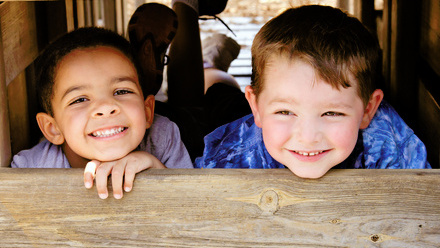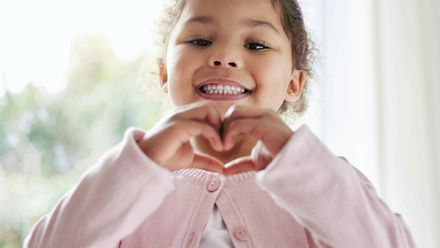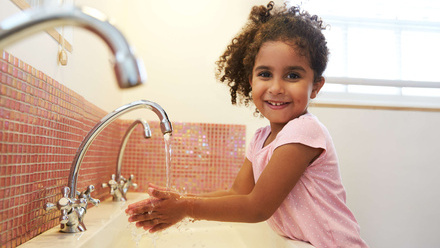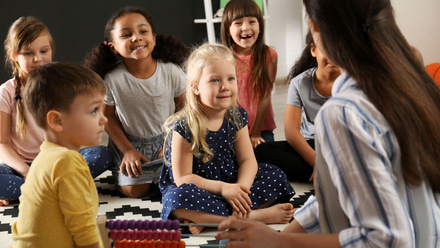How can we support children’s mental health?
Mental health and wellbeing is something that impacts everyone, including children in their early years. Being mentally healthy and becoming mentally healthier are stages of mental development integral to future relationships, regulation and resilience. Alongside health care professionals and other agencies, early education and care professionals have a crucial role to play in establishing strong mental health practices for young children to take throughout their lives.
What do we mean by mental health and what might it look like for children in their early years?
Mental health is varied and personal to us all. Individually we will all have had very different experiences and will have faced different challenges that contribute to our own understanding of what mental health means for us. Nonetheless, it is important to establish a shared understanding of mental health, that encourages collaboration for supporting children’s emotional development and mental wellbeing. The United Nations Convention on the Rights of the Child (UNCRC) stipulates that children have every right to the best healthcare available, including of their mental health.
For the purposes of this article, mental health refers to “an individual's cognitive, behavioural and emotional wellbeing” (Mind, 2020). It's something we all have, throughout children and as adults too.
For children in their early years, their initial experiences with mental health are a strong indicator for their future development and emotional wellbeing. It is
important that every professional working with young children has a sound knowledge of infant and children’s mental health, in order to support healthy development and to recognise where any mental health concerns arise. As we’ve already touched upon, mental health experiences are entirely individual and very personal to every different child. However, there are some common difficulties where children might require targeted support, such as negotiating new social skills which might involve the development of new relationships. There might also be some more specific needs that might require further support, such as having experienced a trauma or bereavement.
If you have concerns about a child’s mental health, please speak to your manager immediately to ensure the appropriate action is taken for the best interests of the child and their family.
Things we can do to support children’s mental health
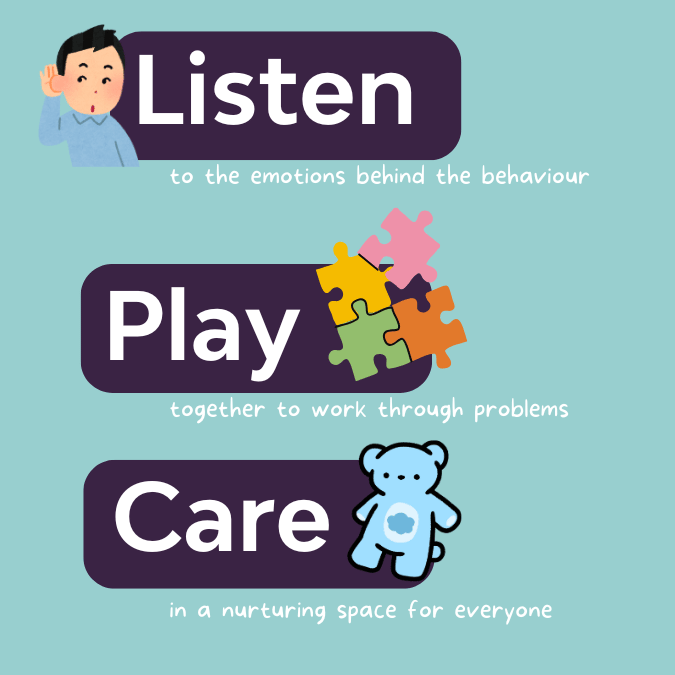
Professionals working with young children all hold a responsibility to support children to develop in a safe and happy especially when it comes to feelings of security and mental wellness.
Listen
Young children are always learning, absorbing new sights and sounds and experiences that craft their understanding of the world around them and their responses to how it changes. As children grow, these early experiences feed into their values, beliefs and personalities. Every child has the right to be heard and educators play a special role in ensuring children feel recognised and understood.
Responding to children’s needs requires us to listen to them. This may sound obvious but in any busy early years environment, the value of taking the time to talk with children on a 1-1 basis, to listen to and learn about their needs, interests and feelings can sometimes be overlooked. We know that children’s conversations and communication can often be lengthy and imaginations can be vivid, but it’s crucial that we respect the thoughts and expressions children make as being authentic and genuine experiences for them. So, whether a young baby is crying because their keyworker has left the room to make a bottle, or a toddler has withdrawn to a corner because they have been asked to take their coat off, the emotions behind the reactions are very real and can be overwhelming for young children to comprehend. A listening ear that considers the perspectives and perceptions of young children can make a huge difference to a child’s mental wellbeing.
Play
Play is a fundamental principle to children’s initial development and lifelong learning. A unique language that children use to navigate their ever-expanding world, play provides novel and interesting ways to express their thoughts and feelings, work through emotions and find alternative ways to approach challenges.
It's integral to high quality interactions, that we provide stimulating provisions to enable children to express themselves through play but also that, in order to listen and respond sensitively to children’s feelings, participate in play with them too. Sustained Shared Thinking can provide a helpful structure for children to articulate their thoughts and feelings throughout play, working through ideas and problems with trusted grown ups to support their sense of self, belonging, and overall wellbeing.
Care
Care practices are as much a part of a professional’s role in the early years as it is to educate whether you’re a baby room practitioner who is responsible for coordinating naptimes and developing co-regulation techniques or working with children just starting school and supporting them to dress independently and encouraging self-care. Quality care practices provide a nurturing space for children to feel confident and valued. It’s not just about the care professionals provide for young children though, that contributes to their mental health and wellbeing – professionals should also be using meaningful learning opportunities to promote self-care practices for a sustained contribution to their supporting their mental health as they grow.
Final thoughts
Mental health is a part of us all so it’s important that we do everything we can to give children the best start in life from the earliest age. Research has highlighted that 1 in 18 preschool aged children have experienced mental health difficulties and, in a post-pandemic world, this continues to be a prevalent issue across the early education and care sector.
3rd – 7th February 2025 is Children's Mental Health Week. Join us for a week of useful resources and exciting opportunities to celebrate children’s mental health and your special role in supporting children to be happy and healthy individuals as they grow.
Futher resources:
https://learning.nspcc.org.uk/child-health-development/child-mental-health
Support children’s mental health and wellbeing with our… | EEF

